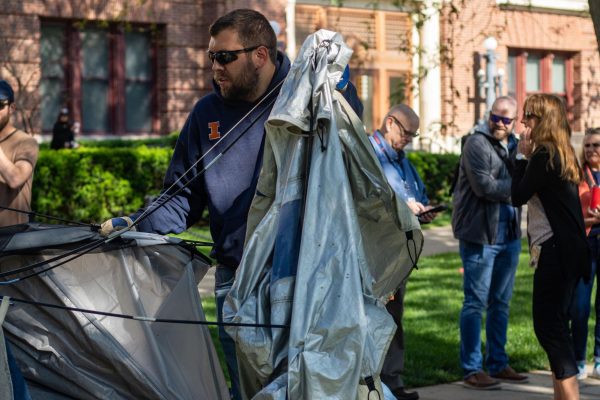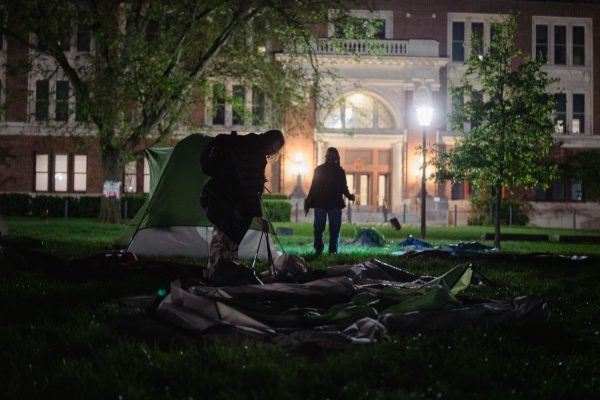Standards for student groups warranted
February 12, 2008
Last week, The Daily Illini reported that The Roman Catholic Foundation, a student organization at the University of Wisconsin-Madison, was suing the school because it refused to give the group funds for evangelical training camps, religious retreats and Lenten booklets.
Administrators hold that funding the group’s activities would violate the separation of church and state. But a federal judge has issued an injunction pending trial that forces the school to give the group $39,000 in requested funding, citing the group’s First Amendment rights.
Craig Griffie, a member of the foundation, was quoted by a local TV station, “What it means for students is that, you know, as student organizations are able to speak freely about our Christian beliefs here on campus, and the university can no longer discriminate against that.”
Alexander Gallagher, chair of UW-Madison’s student service finance committee, said that the school sets criteria that preclude funding for “activities involving worship, religious proselytizing or religious instruction.” The University of Illinois also sets a standard that funds collected from the Student Organization Resource Fee must be used for educational purposes and not related to religious conversion.
Declining to provide government money for such purposes is an issue that’s been argued about in court for years. But should the foundation prevail in its summer trial, a chilling standard may be set for all public universities.
Get The Daily Illini in your inbox!
Opening the door for student money to be used to fund overtly religious activities could lead to schools all over the country being forced to decide what, if any, educational or community benefit they have. That kind of standard is inherently subjective and could mean that student leaders and administrators may have to start judging beliefs.
Reasonable restrictions, like those placed on this campus’s SORF funding, are necessary in an environment with limited resources and a clear, educational purpose. Much as SORF money may not be used to influence the results of a student government election through contribution or endorsement, so too should money not be allowed to be used by a religious group to overtly proselytize.
A lack of funding does not by itself constitute discrimination or a violation of the First Amendment. Rather, a refusal of funds represents a reasoned judgement that some activity is outside the realm of what government ought to be involved in.
Student religious groups should be welcomed on campuses everywhere, including this campus, but the buck has to stop somewhere.






